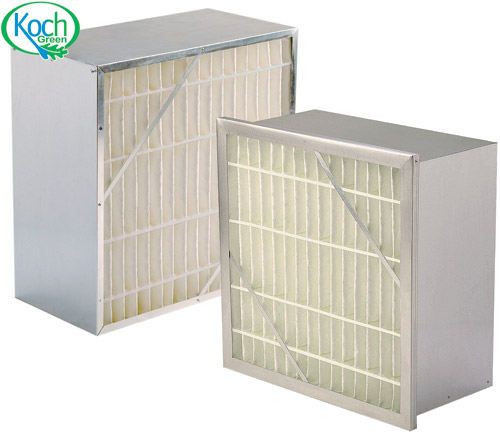The Ultimate Guide to Choosing the Right HVAC Air Filter Housing
The right filter can significantly improve air quality while reducing allergies and odors. But with a slew of options at the home improvement store, choosing the best HVAC filter can feel daunting.
Start by locating the return grille (vent) and looking for the filter slot. This is usually located underneath, above, or on the side of your home furnace equipment.
Material
The material used in an HVAC air filter housing is essential because it impacts how much the filter restricts airflow through your home’s ducts and vents. The more restrictive a filter is, the higher its pressure drops, and the less air can pass through it.
The ideal filter material is lightweight and easy to clean. In addition, the material should be resistant to mold and bacterial growth. This is particularly important since the bacteria and molds can clog the ductwork and increase the likelihood of system failure.
In many homes, the air filter is located in a return vent. This vent is usually more significant than the regular vents around your house and can be found on your wall, ceiling, or floor. The filters in these vents are designed to trap allergens and irritants so they don’t get circulated throughout your home. This can enhance your HVAC system’s performance and lessen issues with indoor air quality.
Size
It’s no secret that an HVAC filter significantly impacts your home’s indoor air quality and energy efficiency. With so many alternatives available, selecting the best one might be intimidating, but making the correct choice the first time is crucial.
Size is the most important consideration when purchasing a new filter. When you use the improper size filter, you restrict airflow and push your system to work harder, causing additional wear and strain on your equipment.
Often, you can find the proper size by looking at the filter’s MERV rating. Most people assume that the higher the MERV rating, the better the filter is. However, this is only sometimes the case. While a high MERV rating may improve your home’s indoor air quality, it can also harm your system and increase the risk of expensive repairs. A good rule of thumb is to choose a filter with a MERV rating between 6 and 12. This will ensure that your system’s airflow won’t be restricted.
Efficiency
The HVAC filter is the first defense against pollutants like pollen, pet dander, germs, and mold spores circulating throughout the house. It also protects the blower motor and coils by keeping them clean and operating efficiently. If the filter becomes dirty, it restricts airflow to the system, forcing the blower motor to work harder to heat or cool the home.
The good news is that fresh filters are budget-friendly, simple to replace, and provide excellent filtration by catching the microscopic bits of dust floating around in your home. Choosing the right filter can dramatically affect your comfort, health, and the performance of the HVAC system. The key is evaluating the MERV rating (which determines how efficient the filter is) and the size of your HVAC system to make an informed purchase.
Cost
By removing hazardous particles such as dust, mold, bacteria, and pet dander, an HVAC air filter helps to enhance indoor air quality. Keeping the filter clean can help reduce allergy and asthma symptoms and other long-term health concerns. However, a dirty air filter can affect system performance by restricting airflow and making the blower fan motor work harder. This can result in higher energy bills.
When choosing a replacement air filter for your home, it’s essential to consider the size and efficiency of the filter. A professional can provide recommendations based on your home and air conditioning system. They can also assess your current air quality and help ensure the correct filter is installed correctly, improving system performance and reducing costly repairs in the future.

